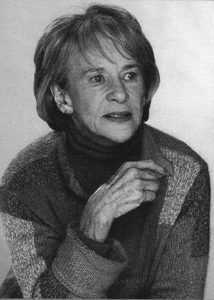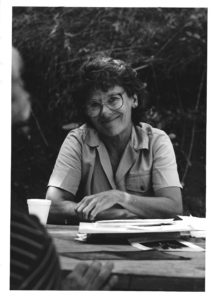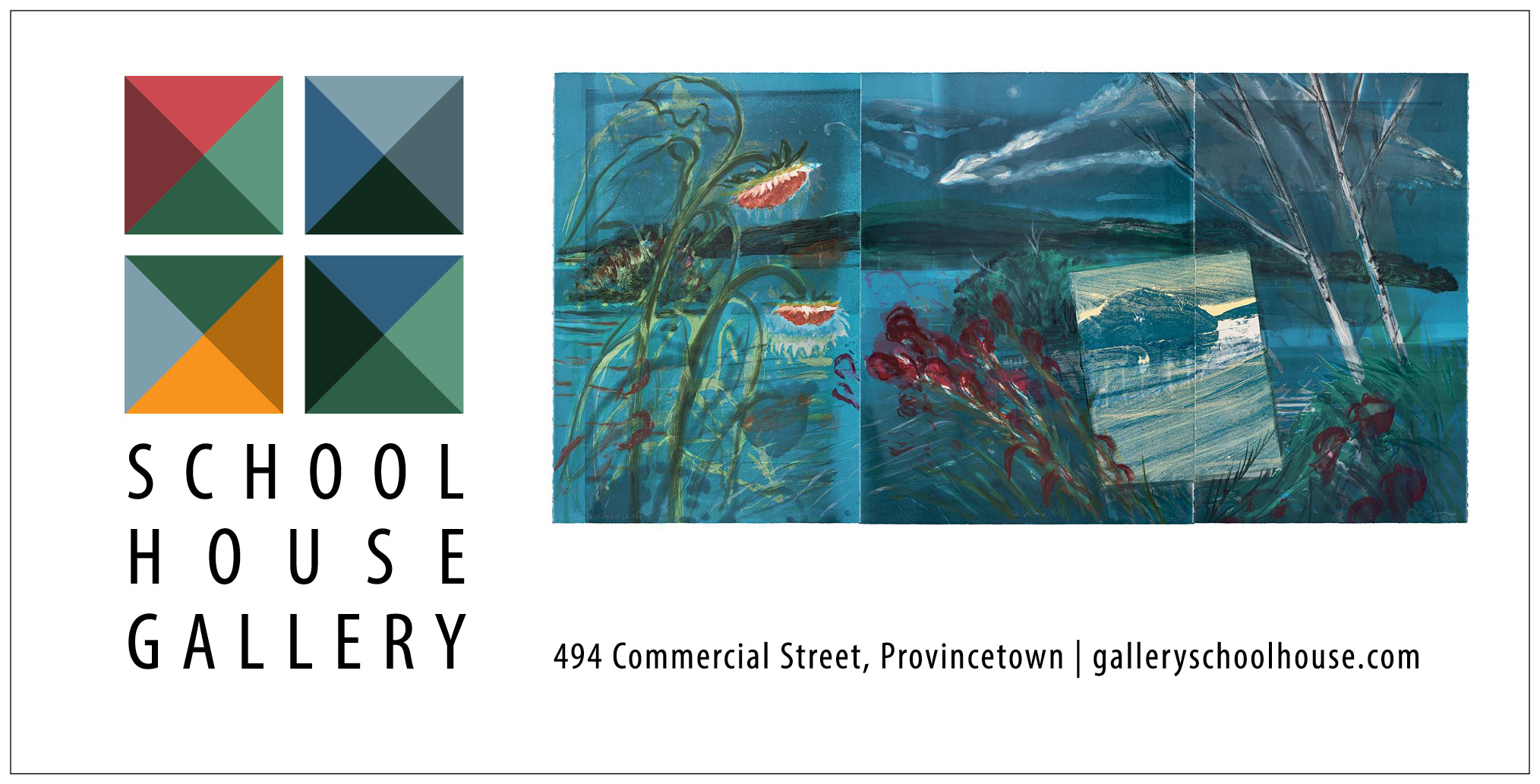Early in her career in the 1950s and ’60s, Eleanor Munro spent summers in the Litchfield hills of western Connecticut. But in 1969, she married E.J. Kahn Jr., the noted New Yorker writer, who introduced her to Truro, where the two spent summers on what had once been a farm on South Pamet Road.
It was there, said her stepson, E.J. “Terry” Kahn III, that Eleanor, “an art critic, feminist, and intellectual from New York City, found her voice writing.” To facilitate her work — and his own — her husband built paired writing studios on either end of an old farm outbuilding. Ten years later, in 1979, her groundbreaking book, Originals: American Women Artists, in which she coined the term “psychoesthetics,” was published.

Eleanor Munro died on April 1, 2022 at an assisted living facility in Rye, N.H. According to her son, David Frankfurter, her death was the result of the dementia she had faced for many years. She was 94.
The daughter of Thomas and Lucille (Nadler) Munro, Eleanor Carroll Munro was born in Brooklyn, N.Y. on March 28, 1928. The family moved to Ohio when her father became a curator at the Cleveland Museum. Eleanor went to the Hathaway Brown School in Shaker Heights and graduated from Smith College in 1949. She spent the following year at the Sorbonne in Paris.
When she returned to New York, Eleanor acted with Judith Malina’s Living Theater and began writing essays and art reviews. She became a contributing editor for the New Republic, The Atlantic, Saturday Review, Vogue, and Ms. Magazine, among others. From 1952 to 1959 she worked as associate editor of Art News magazine and then managing editor of Art News Annual. She married the editor, Alfred M. Frankfurter, in 1959 and the couple had two sons. Frankfurter died in 1965.
In Truro, Eleanor established herself in the art world of the Outer Cape. In 1979 she joined the board of the Truro Center for the Arts at Castle Hill, serving as president in 1988-1989 at a particularly critical time for the center.
Munro wrote about that time in an essay for the 25th anniversary of Castle Hill, now celebrating its 50th year. At the time, opposition had mounted against an ambitious plan for expansion. “The once joyous cooperative spirit in and around the school [at Castle Hill],” she wrote, “seemed gone. There was even some feeling in Truro that the school had run its course and should close.”
Under Munro’s leadership, however, a compromise was reached in what she called “the ultimately reunifying drama.” Castle Hill committed “to keep what is good and build slow and strong.”
At Castle Hill, Eleanor taught a wide range of courses in art and art criticism, nonfiction writing, and the art of the memoir. According to Cherie Mittenthal, the current director of Castle Hill, Munro “was a highly respected teacher who would welcome repeat students year after year.”
In Eleanor’s writing, the boundaries between art and memoir are nearly invisible. In her book Originals, extensive interviews with Georgia O’Keefe, Alice Neel, Joan Mitchell, Anne Truitt, Faith Ringgold, June Wayne, Louise Bourgeois, and other significant women artists illuminate their work amidst obstacles both personal and societal.

In a 1980 interview in the Christian Science Monitor, she discussed how the exclusion of women from mainstream art became a form of freedom. Her focus, she said, was “on these women as survivors, not victims.” And “when the world began to open up to them, they were ready.”
Munro’s Memoir of a Modernist’s Daughter (1988) confronts a similar tension in her upbringing. “In our household,” she wrote, “you could love Beethoven, but God forbid that you should be him. God forbid that you should have an artistic temperament.”
Munro’s first book, Encyclopedia of Art, came out in 1961, and a second, Through the Vermilion Gates, on Chinese art, was published in 1971. On Glory Roads: A Pilgrim’s Book About Pilgrimage was released in 1987. She also published two collections of readings for secular weddings and memorial services: Wedding Readings (1989) and Readings for Remembrance (2000). A second edition of Originals with added profiles of architect Maya Lin, director Julie Taymor, and several others appeared in 2000.
For her work as a writer, editor, and lecturer, Eleanor was honored with the Cleveland Arts Prize in 1988 and the Medal of Honor at Smith College in 1990.
She is survived by her son David Frankfurter, a professor of religion at Boston University, and grandchildren Raphael Frankfurter and Sariel Golomb; by siblings Donald Munro of Salt Lake City, Cynthia Beeker of Cleveland, and Elisabeth Smith of New York; and by stepsons E. J. Kahn III, Joseph Kahn, and Hamilton Kahn.
Eleanor was predeceased by a son, Alexander Frankfurter, in 1993.
A memorial is planned for this summer. In lieu of flowers, donations may be sent to the Truro Center for the Arts at Castle Hill.
—————
Obituaries in the Independent
The Provincetown Independent publishes obituaries as news stories of abiding interest to the community. There is no charge. Draft obituaries may be submitted to [email protected]. All submissions are subject to editing.



